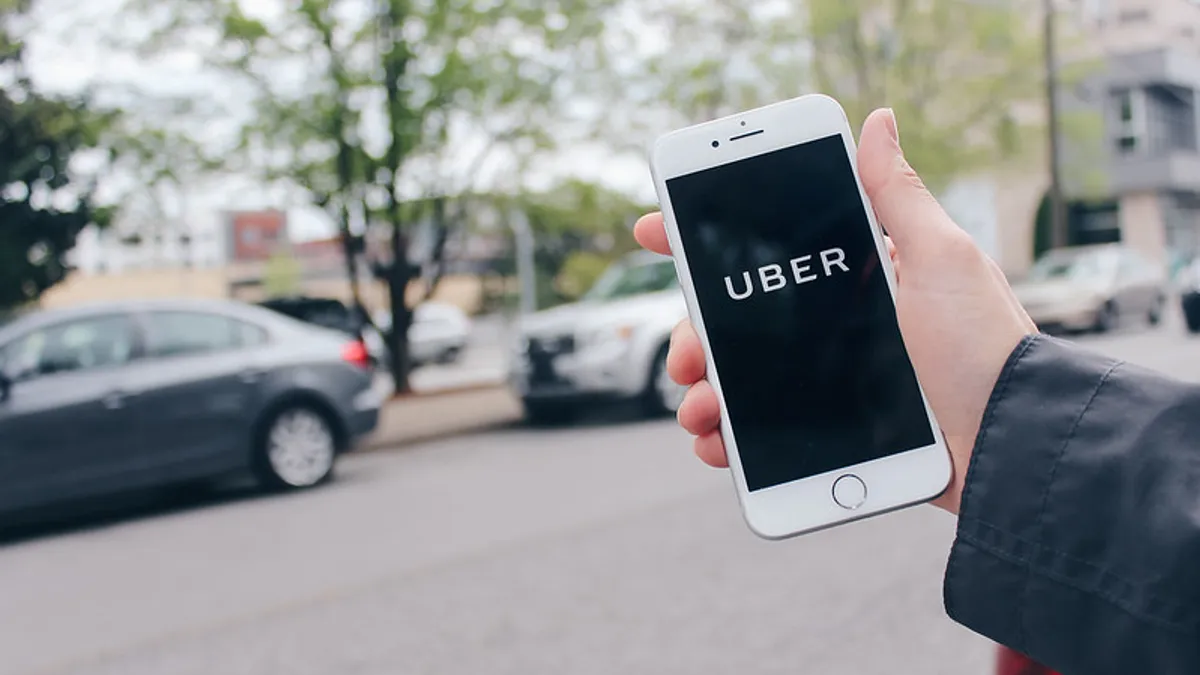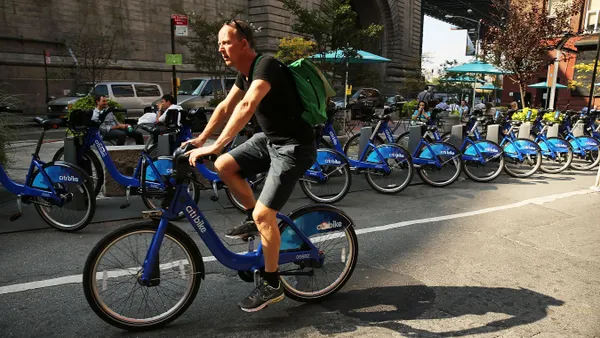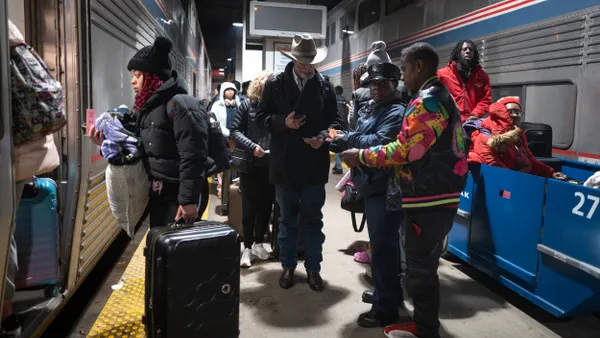Dive Brief:
- Uber on Thursday acquired Routematch, an Atlanta-based transit software company that brings accessible and inclusive mobility technologies to more than 500 agencies around the world. Uber declined Smart Cities Dive's request for the terms of the acquisition.
- The deal was centered on Uber's goal of supporting the expansion of equitable and accessible public transportation, Uber Transit Head David Reich said in a statement. The partnership will marry Uber's on-demand mobility technologies with Routematch's transit agency support tools, including fixed-route tools and planning services, according to a company news release.
- The acquisition will also expand Uber's influence in the Software-as-a-Service (SaaS) market. The deal comes on the heels of Uber's first SaaS partnership in Marin County, CA, where the company helped the local transit agencies integrate transit service offerings into the Uber app.
Dive Insight:
This acquisition adds to a bevy of recent announcements from Uber regarding the support of public transit. Aside from its partnership with Marin County — which Reich called a "historic first" — the company launched a transit ticketing initiative this week across 13 agencies in Ohio and Kentucky to offer transit riders in-app data and ticket purchasing capabilities. In fact, Uber has partnered with more than a dozen cities, including Boston and Denver, to integrate public transit schedules and information into its app.
Uber's acquisition of Routematch indicates a further push into SaaS offerings and signals the company's potential trajectory of broader acquisition strategies in the transit space. Uber declined to respond to Smart Cities Dive's questions regarding its future moves in the SaaS market.
The company's advocacy of public transit systems is a stark but welcome contrast to the apparent impact Uber's ride-hailing services have had on public transit ridership. A 2019 study from the University of Kentucky found heavy rail and bus ridership typically decrease 1.3% and 1.7%, respectively, after a transportation network company (TNC) enters a market. Meanwhile, an early 2020 report from the Union of Concerned Scientists (UCS) found trips on TNC services produce nearly 70% more emissions than the transportation options they replace, like rail or bus service.
Jeremy Martin, a senior scientist at UCS, said in an earlier interview that efforts among TNCs like Uber to support public transit can help reduce these emissions, but governments must do more to keep individuals from hailing solo rides.
Now, as the novel coronavirus pandemic (COVID-19) upends societal norms and the familiarity city dwellers once had with public transit, it is crucial for TNCs to step up and be a partner to transit agencies. In a June white paper, analysts at Perkins and Will Mobility Lab said such partnerships "could alleviate the financial burden on public transit systems" spurred by the pandemic, by enabling greater flexibility and technology services among transit agencies.
It is likely Uber will continue expanding its work with public transit systems, especially as its core "Rides" segment struggles to survive the pandemic, CEO Dara Khosrowshahi confirmed on the company's Q1 earnings call.
"I won't sugarcoat it. COVID-19 has had a dramatic impact on Rides with the business down globally around 80% in April," he said, according to the call transcript. He continued to say there are "some green shoots driving restrained optimism" in the business, but ultimately said he expects Rides to "be less important in the near-term."
Outside of transit, Uber is also hoping to expand its Eats division, most recently acquiring Postmates for $2.65 billion. That acquisition could also help to carry the company through the coronavirus pandemic, Restaurant Dive reports.











